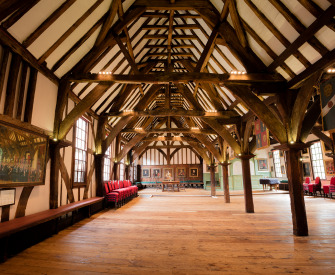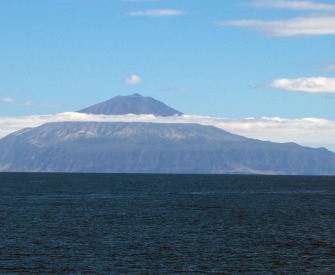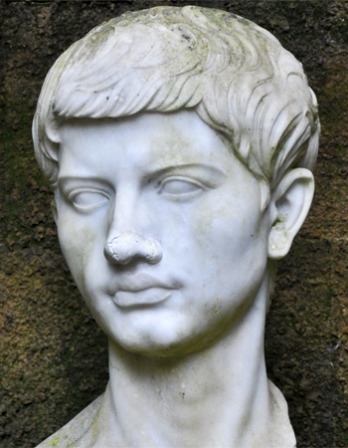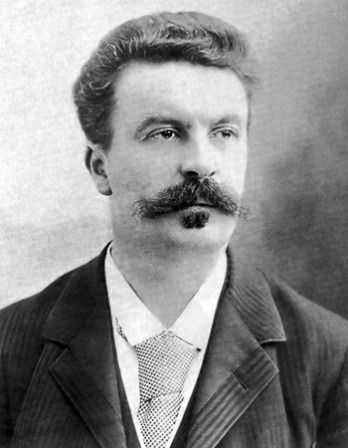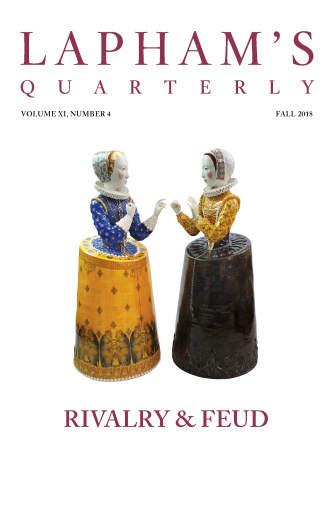It seems there is great reason to believe that mention is made in the Holy Scripture of a matter of such importance as the discovery of the Indies, of the New World, and their conversion to the faith. Isaiah says in these words: “Oh, the wings of ships that come from the other part of Ethiopia.” Many learned authors hold that all this chapter is understood of the Indies. It follows then, and so we ought to understand it, that there are many nations upon the face of the earth to whom Jesus Christ has not yet been preached. Whereby we may gather that there remained a great part of the world unknown to the ancients, and that yet at this day there is a good part to discover.
The huge greatness of the ocean did so amaze Saint Augustine, as he could not conceive how mankind could pass to this newfound world. But seeing on the one side we know for certain that many years ago there were men inhabiting in these parts, so likewise we cannot deny but that the scripture does teach us clearly that all men are come from the first man, without doubt we shall be forced to believe and confess that men have passed hither from Europe, Asia, or Africa, yet must we discover by what means they could pass. It is not likely that there was another Noah’s Ark by which men might be transported into the Indies, and much less any angel to carry the first man to this new world, holding him by the hair of the head. As a result, these two things ought to be considered wonderful and worthy of admiration, to be numbered among the secrets of God: first, how man could pass so huge a passage by sea and land; second, that there being such multitudes of people, they have yet been unknown so many ages. For this cause I demand, by what resolution, force, or industry the Indians could pass so large a sea, and who might be the inventor of so strange a passage? Truly I have oftentimes considered thereof with myself, as many others have done, but never could I find anything to satisfy me. Yet will I say what I have conceived, what comes presently into my mind. It is most certain that the first men came to this land of Peru by one of these two means, either by land or by sea. If they came by sea, it was casually and by chance, or willingly and of purpose. I understand by chance being cast by force of some storm or tempest, as it happens in tempestuous times. I mean done of purpose when they prepared fleets to discover new lands. In my judgment, it is not far from reason to say that the first and ancient people of these Indies have discovered and peopled after the same sort as we do at this day, that is, by the art of navigation and aid of pilots, which guide themselves by the height and knowledge of the heavens, and by their industry in handling and changing of their sails according to the season. Why might not this well be? Must we believe that we alone, and in this our age, have only the art and knowledge to sail through the ocean? We see even now that they cut through the ocean to discover new lands, as not long since Álvaro de Mendaña and his companions did, who parting from the Port of Lima came along the west to discover the land that lies eastward from Peru; and at the end of three months, they discovered the islands they call the Islands of Solomon, which are many and very great. Seeing it is thus, why may we not suppose that the ancients had the courage and resolution to travel by sea, with the same intent to discover the land, which they call Anticthon, opposite to theirs, and that according to the discourse of their philosophy, it should be with an intent not to rest until they came in view of the lands they sought? But to say the truth, I am of a contrary opinion, neither can I persuade myself that the first Indians came to this new world of purpose, by a determined voyage; neither will I yield that the ancients had knowledge in the art of navigation, whereby men at this day pass the ocean from one part to another where they please, which they perform with an incredible swiftness and resolution. Besides, I find not that in ancient books there is any mention made of the use of the lodestone, nor of the compass to sail by; yea, I believe they had no knowledge thereof. And if we take away the knowledge of the compass to sail by, we shall easily judge how impossible it was for them to pass the great ocean. Such as have any knowledge of the sea understand me well; for that it is as easy to believe that a mariner in full sea can direct his course where he please without a compass as for a blind man to show with his finger anything, be it near or far off.
Suppose we grant that the first men came from far countries, and that the nations which we now see are issued from them and multiplied, yet can I not conjecture by what means brute beasts, whereof there is great abundance, could come there, not being likely they should have been embarked and carried by sea? Saint Augustine, treating upon this question, by what reason you shall find in some islands wolves, tigers, and other ravenous beasts, which breed no profit to men, seeing there is no doubt but elephants, horses, oxen, dogs, and other beasts that serve man to use have been expressly carried in ships, as we see at this day brought from the East into Europe and transported from Europe to Peru, although the voyages be very long. And by what means these beasts that yield no profit, but are very hurtful, should pass to the Indies, supposing that the deluge drowned all the earth. Who can imagine that in so long a voyage men would take the pains to carry foxes to Peru, especially of that kind which they call Anas, which is the filthiest that I have seen? If these beasts then came by sea, we must believe it was by swimming, which may happen in some islands not far distant from others, or from the mainland, which we cannot deny, seeing the experience we have, and that we see these beasts, being pressed to swim day and night without weariness, and so to escape. But this is to be understood in small straits and passages, for in our ocean they would mock such swimmers, when as birds fail in their flight, yea, those of the greatest wing, upon the passage of so great a gulf. And although we find small birds which fly above one hundred leagues, yet it is a matter impossible, at the least very difficult, for birds to pass all the ocean. All this being true that we have spoken, what way shall we make for beasts and birds to go to the Indies? And how can I say they passed from one world to another? I conjecture then, by the discourse I have made, that the new world, which we call Indies, is not altogether severed and disjoined from the other world; and to speak my opinion, I have long believed that the one and the other world was joined and continued one with another in some part, or at the least are very near. And yet to this day there is no certain knowledge of the contrary. For toward the Arctic or Northern Pole, all the longitude of the earth is not discovered, and many hold that above Florida the land runs out very large toward the north. Moreover, no man knows how far the land runs beyond the Cape of Mendocino in the South Sea, but they affirm it is a great continent which runs an infinite length; and returning to the Southern Pole, no man knows the lands on the other part of the Strait of Magellan. So as there is no reason or experience that contradicts my conceit and opinion, which is that the whole earth is united and joined in some part, or at the least the one approaches near unto the other. If this be true, as in effect there is some likelihood, the answer is easy to the doubt we have propounded, how the first inhabitants could pass to the Indies. For that we must believe they could not so conveniently come thither by sea as traveling by land, which might be done without consideration in changing by little and little their lands and habitations. Some peopling the lands they found, and others seeking new, in time they came to inhabit and people the Indies, with so many nations, people, and tongues as we see.
From The Natural and Moral History of the Indies. Born in Spain around 1539, Acosta arrived in Lima to work as a Jesuit missionary in 1572. There he taught theology, advised the Third Lima Council, and prepared the first book printed in Peru, a catechism in the Quechuan and Aymaran languages for use among the indigenous parishes. After completing this book, which earned him the reputation of the “Pliny of the New World,” he returned to Spain aboard a ship laden with twelve chests of gold, each weighing a hundred pounds; two chests of emeralds; and eleven million pieces of silver.
Back to Issue

